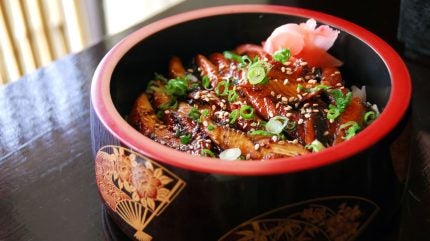[ad_1]

Cultivated seafood developers Umami Bioworks and Shiok Meats have announced plans to merge as a way to edge closer to commercialisation.
Speaking to Just Food, Mihir Pershad, the CEO of Umami Bioworks, did not note when the transaction would close, but said the business expected “a very quick closing period”.
Describing the rationale behind the merger, Pershad said: “Given we had a very complimentary mission, working on endangered species that are hard to find and scale… it felt a very strong, natural fit.
“We’re very close geographically, which meant that we could really reach the combined resources quite effectively”.
Both Umami Bioworks and Shiok Meats are based in Singapore, with the former’s headquarters situated in Singapore Science Park, and the latter located in the western region of the nation.
Umami is focusing on developing cultivated eel, groupers and halibut, with eel and groupers being “the most advanced” in its range. Shiok is developing cell-based crustaceans, including crabs and lobsters.
Access the most comprehensive Company Profiles
on the market, powered by GlobalData. Save hours of research. Gain competitive edge.

Company Profile – free
sample
Your download email will arrive shortly
We are confident about the
unique
quality of our Company Profiles. However, we want you to make the most
beneficial
decision for your business, so we offer a free sample that you can download by
submitting the below form
By GlobalData
Once the merger has been finalised, Pershad said both groups would “be working out exact timelines and sequencing for crustaceans products to come into market and the regulatory pipeline of things”.
Among the combined company’s other near-term projects would include standardising Umami and Shiok’s data collection.
Perhad said: “We’ve obviously had different development regimes… we want to standardise, to harmonise, to get it as straight-forward as possible to… take the shared risk framework and the shared data sets and apply what we’ve done with eel, or other species that we’ve been working on to the work Shiok’s done, as it’ll make it much easier to manage for a [regulatory] dossier in the future.”
When asked whether Umami and Shiok intended to create a new facility to support the alliance, Pershad expected the groups to collectively make a decision on whether or not to construct in the next couple of months.
“Part of the question right now is do we need to build a new facility or can we adapt the collective real estate we now have for multiple purposes?”, he said.
Commenting on its plans to submit a dossier for regulatory approval for the market and sale of cultivated eel, Pershad said an announcement would be made “in a few days”.
He added: “We don’t have a clear exact timeline, beyond our eel dossier [being submitted] in a couple of countries.”
Given the two companies are headquartered in Singapore, the city-state will be its first target market, Pershad said, noting there are “five or six other pirate countries. We’re aiming to put submissions into [these] in the next six months”.
He said: “We’re trying to make our best educated on which markets are going to be best for approval”.
Umami eyeing 2025 launch for cultivated eel
As a “a licensing-based business” that intends to partner with other food manufacturers to sell the product, it also means the group relies on where its customers would like to market first.
Umami wants its cultivated eel product “on the market by early 2025”, a target that should be achievable given regulators have indicated the group will receive a response by the fourth quarter of this year, Perhad said.
Upon receiving the green light from authorities, Perhad said Umami expects to enter foodservice locations to be its “best bet” with cell-based eel.
In foodservice, “chefs are great educators especially [in seafood]”, he explained, “and the ability to put a product in its best presentation in front of consumers, helps them realise this exists… it helps to activate more consumer interest”.
Asked when Umami expected to get its products to retail, Pershad said he expected it to be “the near future”, but added that a lot of work still needed to be done.
“[In] retail, you need minimum volume, you need to have a better understanding, better consumer education, especially if the products look slightly differently,” he said.
The company is working with a partner in Malaysia to build a pilot line for cultivated seafood products. This is expected to be “online in 2025” Pershad said, and aims to produce 3,000 tonnes of lab-grown seafood per year starting from 2026.
One of the partners expected to benefit from Umami and Shiok’s business model is the Japanese group, Maruha Nichiro, which invested an undisclosed sum in Umami last year.
Other partners include one food company in Japan and the other in North America, Pershad said.
[ad_2]
